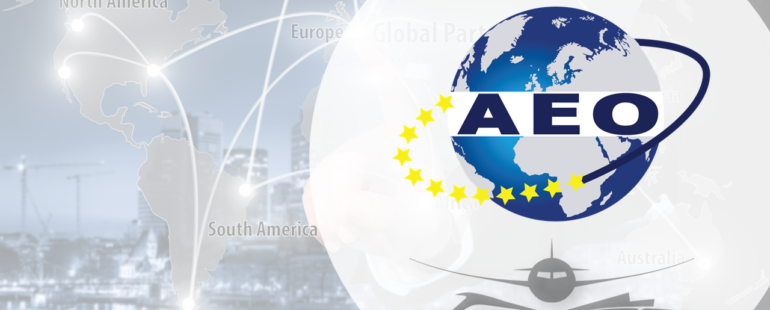
After several months of hard work, our new customs department successfully passed a rigorous customs audit, granting us AEO status.
The Authorized Economic Operator (AEO) status is a globally recognized certification that confirms the reliability and security of companies in international trade.
What exactly this status means, the benefits it brings, and the process we underwent to obtain it are all detailed below:
What is AEO?
The World Customs Organization (WCO) defines an Authorized Economic Operator (AEO) as an entity involved in the international movement of goods in any role, which has been approved by the national customs administration to meet WCO or equivalent supply chain security standards.
Why was AEO introduced?
Due to changes in the global security situation, the member states of the World Customs Organization agreed to implement the “Framework of Standards to Secure and Facilitate Global Trade,” a framework for modern and effective risk management. The Authorized Economic Operator (AEO) certification ensures the security of the entire supply chain from the manufacturer to the final recipient. This certificate confirms the reliability of a company that meets strict security and customs requirements
What does AEO status mean?
An Authorized Economic Operator (AEO) is a term in the customs and logistics sector referring to businesses approved for their reliability and security.
The AEO certificate is granted by customs authorities to individual companies that meet specific requirements in accordance with European Union customs legislation. This status provides companies with advantages in the transportation of goods and customs procedures.
What are the benefits of AEO status for JARO partners?
- Faster customs procedures: AEO certificate holders are entitled to reduced checks and faster clearance during customs procedures. This means goods pass through customs processes more quickly, shortening delivery times and improving the efficiency of logistics operations.
- Reduced risk for partners: AEO holders adhere to high standards of security and compliance. Business partners can rely on working with a verified and secure partner, which brings benefits not only within the EU but also in international trade.
- Enhanced trust in international trade: The AEO certificate improves a company’s reputation in the international business environment. For customs authorities in partner countries, an AEO holder is a mark of security and reliability.
- Global recognition: The AEO status is recognized outside the EU thanks to mutual recognition agreements with other countries, such as the USA, Japan, and China. This aspect is crucial for companies operating in international markets, as it facilitates their business operations in these countries.
What is the process for obtaining AEO status?
To obtain AEO status, a company must demonstrate that it:
»» Complies with customs and tax regulations
»» Has sufficient financial solvency
»» Has established security standards in IT and physical security
»» Is capable of tracking goods flows in compliance with customs regulations and requirements
Companies interested in AEO certification must submit an application to the relevant customs authorities. The customs administration then conducts a thorough assessment of the applicant, including an audit of processes and security measures. This process can take several months and is contingent upon meeting all requirements.
An Authorized Economic Operator is an important tool that allows companies within and outside the EU to facilitate customs processes, increase competitiveness, and reduce costs associated with the transportation of goods.
What is relating legislation?
The legislation governing the Authorized Economic Operator (AEO) status in the European Union is found in the following key legal documents:
1. Union Customs Code (UCC) – Regulation (EU) No 952/2013 of the European Parliament and of the Council. This code sets out the general rules and conditions that businesses must meet to obtain AEO status.
Link: https://tinyurl.com/24xttwyy
2. Commission Implementing Regulation (EU) 2015/2447 – This regulation provides detailed information on the conditions and procedures related to AEO certification applications and customs audits.
Link: https://tinyurl.com/m8fj6tbw
3. Commission Delegated Regulation (EU) 2015/2446 – This regulation addresses certain specifics regarding the application and criteria, including security measures that businesses need to fulfill.
Link: https://tinyurl.com/3uyjpa9j
Together, these regulations form the legal framework for the AEO program, establishing the conditions, procedures, rights, and obligations of AEO certificate holders in the EU.
Sources:
European Commision – AEO Introduction: https://ec.europa.eu/assets/taxud/taxation_customs/elearning/ebooks/aeo_ebook_en/index.html
AEO eLearning – EU Taxation and customs union: https://taxation-customs.ec.europa.eu/customs-4/aeo-authorised-economic-operator/aeo-elearning_en
Market access database: https://trade.ec.europa.eu/access-to-markets/cs/content/authorised-economic-operator

